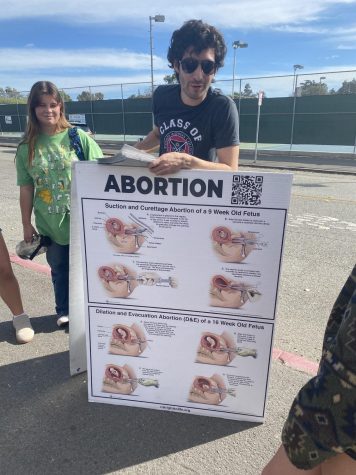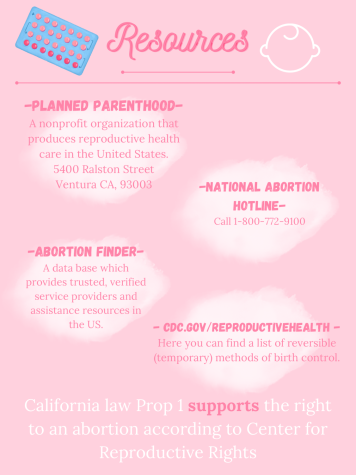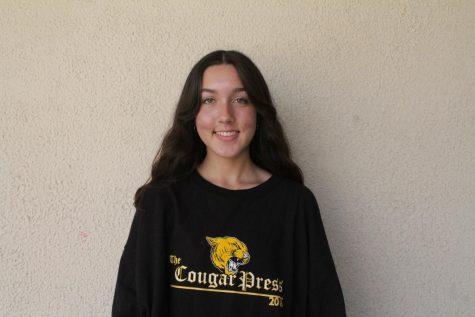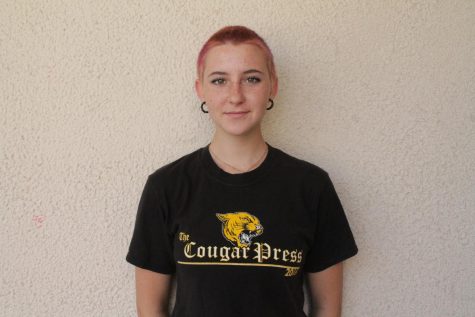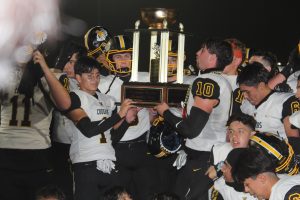Opinion: Anti-abortion activists spread misinformation on the VHS campus
November 29, 2022
Activists held graphic pro-life propaganda outside the student lot and debated with students on the controversial subject of abortion
On Oct. 19, three male Thomas Aquinas College students and one female California Right to Life member stood outside the Ventura High School student parking lot during school hours and held anti-abortion posters and handed out pamphlets to passing students. While the activists were within their rights to stay on campus as they remained on the sidewalk, which is considered public property, several students expressed discomfort or anger at the fact that the activists were permitted to stay despite VHS staffs’ knowledge. Some students even tore up the pro-life pamphlets in front of the activists’ faces.
Caylin Mobley ‘23 said, “I understand that freedom of speech is a thing, however, it’s difficult for me to see these people obviously going out and … basically protesting against me as a human being, me and my choices and me and my body.”
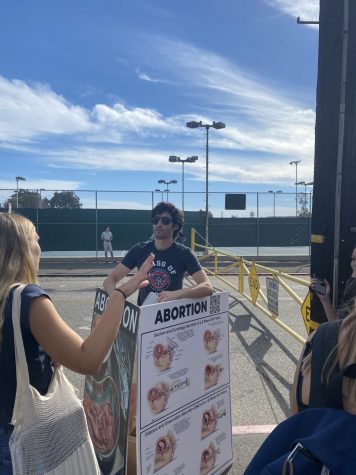
Besides the question of whether or not the “pro-lifers” should have been able to stage themselves at school, after simple research, it is clear that their posters were nothing more than propaganda. The posters, four in total, displayed gruesomely misleading images from the organization “Created Equal,” of an aborted 15 and 11-week-old fetus. The mess of limbs and blood is an inaccurate depiction of abortion for several reasons. For one, according to the British National Health Service, at 15 weeks old, the fetus is “around 10.1cm long from head to bottom, which is about the size of an apple.” Second, images like these often go hand and hand with the idea that fetuses at these stages of development can feel pain. This tactic is manipulative and medically inaccurate.
According to the National Library of Medicine, the neural circuitry development of the fetus has not progressed enough for the brain to register pain before 26 weeks old. According to the article, “Not only has the biological development [of the fetus] not yet occurred to support the experience of pain, but the [outside] environment after birth, so necessary to the development of pain experience, is also yet to occur.” This means that feeling pain requires mental development outside of the womb in order to acknowledge the existence of pain.
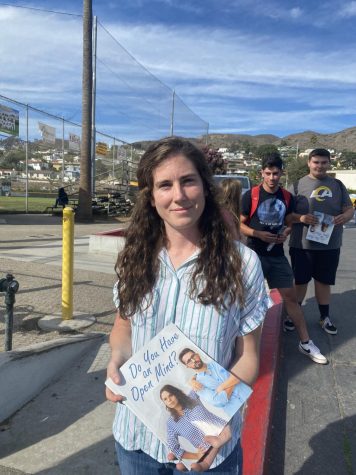
Smith said, “If you think it’s a natural human thing to bring other humans into the world, I guess it seems like there is something right about [sex] I guess. What makes something right or wrong, right? Would you guys agree there are some things we should do and something that would just be wrong to do morally?”
To clarify, Smith argued that contraceptives were unnatural, eventually confirming his opposition to methods of preventing pregnancy after circling the specific question several times.
Smith said, “I’d say I’d be against the use of contraceptives.”
On top of disapproving of safe sex that does not result in a child, the anonymous activist was not aware of the state of the foster care system. When informed by students about the mental and physical dangers imposed on kids in the foster system, he seemed surprised and redirected the conversation to government funding.
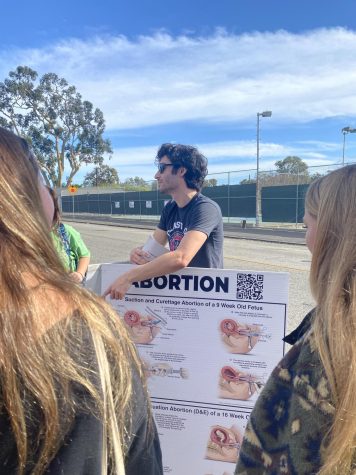
We fully acknowledge and respect the First Amendment which grants American citizens the right to free speech. In this specific case though, the problem lies in the fact that these students chose to come onto our campus to spark conversation about a continuously controversial, highly sensitive subject for which they were factually unprepared. They held signs illustrating terribly inaccurate graphic depictions of an “abortion” and unorganized, poorly-defended claims which lacked evidence and relied more so on their religion and outsider opinions. The men holding those signs will never find themselves in a situation where they are forced to give birth to a child they are not prepared for. Furthermore, it is hard to take their words seriously when they barely give us proper answers without laughing at our questions or dodging specifically worded questions because they cannot find a proper response to give us.
While having an abortion is rarely an easy or simple-minded decision, the most important part about the possibility of abortion is the right to choose. It is vital that well-researched information is available to the general public, whether it be for or against abortion, contraceptives or the discussion of sex overall. Everyone’s experiences and beliefs differ. Pro-choice is not pro-abortion. Pro-choice is giving people the freedom to control their own lives and make decisions that they deem best fit for their health and well-being. Some people simply are not mentally, physically or financially prepared to support a child, and there is absolutely no reason to be ashamed of such a thing. What matters is that support and help are available as well as easily accessible. By weening out misinformation, providing resources for women in need and offering emotional support, we can help prevent dangerous methods of abortion and sex, such as at-home abortions, which can be fatal, improper use of contraceptives or poor parenting.
